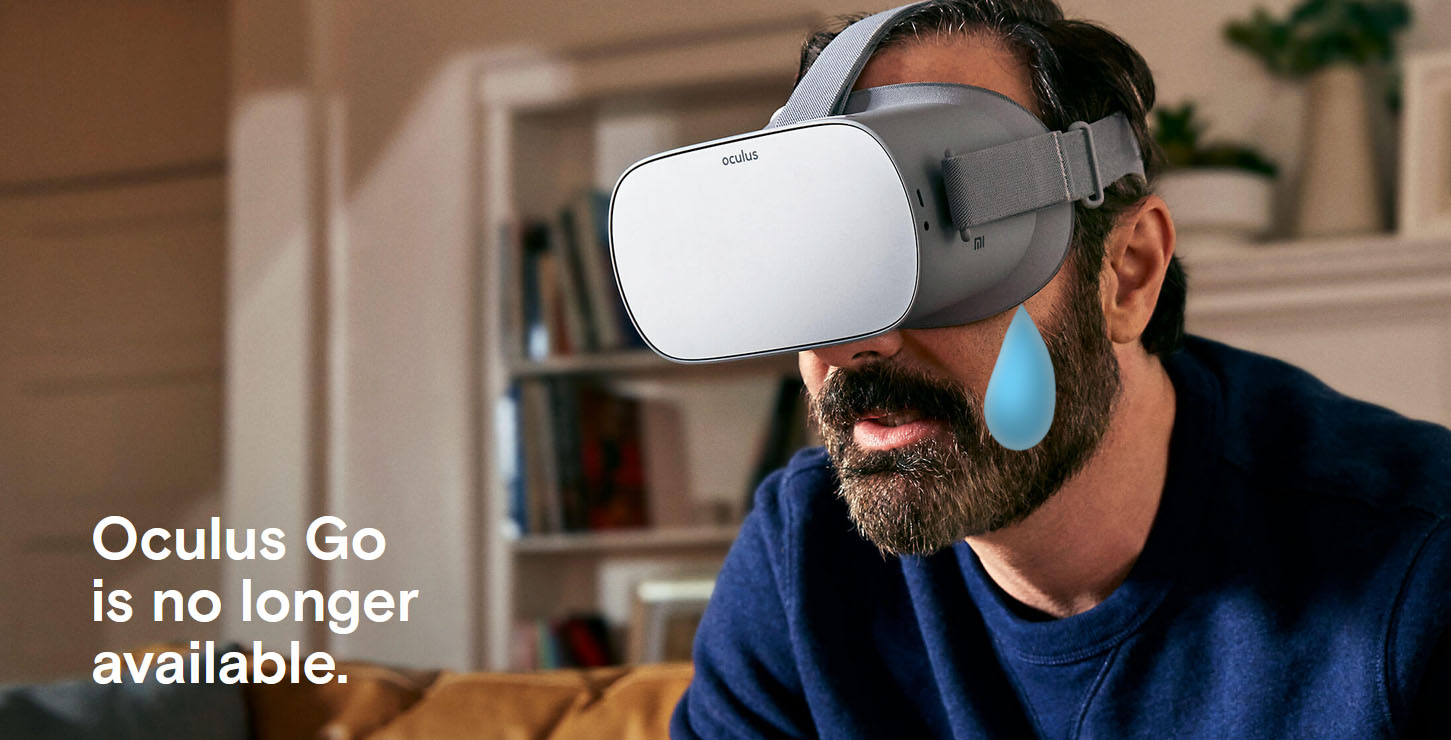
June 24, 2020 – Facebook owned company Oculus has this week announced that it will not be shipping any more 3DoF (3 degrees of freedom) virtual reality products – namely, the company’s Oculus Go headsets.
Since the company launched Oculus Go two years ago, VR technology has improved. The success of the Oculus Go device helped to demonstrate that an all-in-one form factor can deliver highly immersive experiences. A year later, the Oculus Quest standalone VR headset was released, with full head and hand movement (6DoF) powered by Oculus’ Insight tracking system. It brought with it the introduction of several popular VR gaming experiences that were all completely untethered (as well as access to high-powered PC games through Oculus Link).
One year after the release of the Quest, Oculus has seen success with the standalone VR device, and as a result the company will now end sales of the more limited Oculus Go device this year as it doubles down on improving its offerings for the Quest and Rift platforms instead. In a blog post, the company stated: “… we’re going all-in [on 6DoF], and we won’t be shipping any more 3DOF VR products.”
In addition to this announcement, Oculus has also shared a new way that developers will be able to distribute Quest apps starting next year. The company noted its strategy of setting the bar high when it comes to content in order to assure users that they will only be offered quality titles, and to give developers more confidence to know that their work will have a strong chance of success on the platform. That strategy seems to be working, as the company stated last month that users have spent more than USD $100 million on Quest content and more than 10 titles have generated over USD $2 million in revenue on Quest. As Oculus builds on this success moving forward, its store curation process will remain the same. However, now that Quest has built what the company sees as a “healthy and sustainable ecosystem”, Oculus is ready to open a new avenue for VR development.
Therefore, in early 2021, Oculus will offer a new way for developers to distribute Quest apps that will allow them to share apps to anyone with a Quest, without having to be accepted into the Oculus Store, and without the need for sideloading (the process of loading content that is outside the curated store onto a Quest device – often through the use of platforms such as SideQuest).
The company doesn’t have much more information to offer than this at the moment, but it stated that it wants to share the information now in order to help make Quest accessible to a wider group of developers, including those who do not ship through its store, as well as to encourage the Oculus Go development community to start building for Quest if they choose, with the option to target this new channel.
Oculus stated: “By making it easier for more developers to reach Quest owners in the future, we hope to spark inspiration with those who will build the next wave of engaging experiences for Quest.”
Commenting on the retirement of the Go platform, the company added: “Oculus Go opened up VR to many more people, and it helped redefine immersive entertainment. From live concerts and sporting events to couch co-op gameplay, corporate training, and beyond, Oculus Go made new experiences possible for people around the world, and it laid the groundwork for Oculus Quest.”
This could be the first move towards a stripping back of Facebook’s range of VR device offerings. There was speculation that with last year’s release of Oculus Link, which allows a Quest device to be used to access content for the Oculus Rift platform via a cable connection to a PC, would effectively make Rift devices themselves redundant in the long run. Plus it makes sense to many for the industry to move towards untethered experiences.
For those that own an Oculus Go headset, they will still be able to use it even after sales of Oculus Go end. Oculus will also continue to maintain the system software with bug fixes and security patches through 2022. However, the company won’t be shipping new features for Oculus Go moving forward, and will no longer accept new Oculus Go apps or app updates into the Store after December 4, 2020. New Go apps will cease to be added to the store entirely after December 18, 2020. Click here for more information.
Image credit: Oculus / Auganix
About the author
Sam is the Founder and Managing Editor of Auganix. With a background in research and report writing, he has been covering XR industry news for the past seven years.
